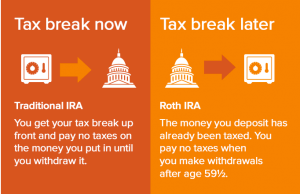
Financial Planning vs. Investment Management
Financial PlanningJul 20, 2022
Last week, we wrote about the psychological aspect of investing. This week, we’ll take it a step further and discuss how financial planning relates to your investment decisions. If you ask ten people what they think a financial advisor does, you will likely receive ten different answers. The one common theme in all ten answers will probably be investing money. However, the financial planning side is where the opinions will differ. It may very well depend on what each person relies on his or her advisor for the most. The financial planning process includes a number of factors, but most people will only relate to what is most important to them. Money is obviously the center of financial planning, which makes the investment management piece the standout.
It makes a lot of sense if you think about it. First and foremost, investment management is more exciting. Who doesn’t like making money? The thrill of owning a hot stock gives a lot of people similar satisfaction to winning money at the casino or in sports betting. If you work with a professional, he or she will take steps to help you manage the risk in your portfolio. Unfortunately for the gamblers out there, risk management will probably limit the number of high-flying stocks in your portfolio. That may be a welcome development for those that watched their big winners from 2020 and 2021 tank in 2022.
Financial planning takes a lot of the fun out of investment management. It requires discipline that will suggest that you prioritize your long-term goals above the short-term thrills that satisfy your inner gambler. Financial planning is not exactly a riveting process that you will be excited to tell all your friends about. It is, however, a great way to put yourself in a position to build your wealth over the long term. Financial planning takes your whole financial picture into account going well beyond your investments. It is very process driven and considers all the factors to construct a portfolio that is aligned with your long-term goals.
So why should you take the less exciting path? Well, it really depends on your mindset. There are people that gamble their way to wealth, but they are few and far between. Generally speaking, investing with no plan is a gamble. The better approach is to review your balance sheet, set some realistic goals and make a plan to achieve those goals. Your plan will include an asset allocation for your portfolio that has lived through many market cycles vs. throwing money at different stocks that sound cool.
While the planning approach takes some of the fun out of the investments, it forces you to focus on what you can control. The investment performance is out of your control, but your commitment to the plan is not. If you do your part, the diversified portfolio has a high probability of taking care of the performance objectives you set assuming they are realistic. We’re not saying you can’t partake in some “fun” investing. Just make sure you are comfortable with the risk associated with the money you are allocating to it. Discipline results in better outcomes in many situations in life including investing. Applying a planning-based approach and committing to it will pay off in the long run.


